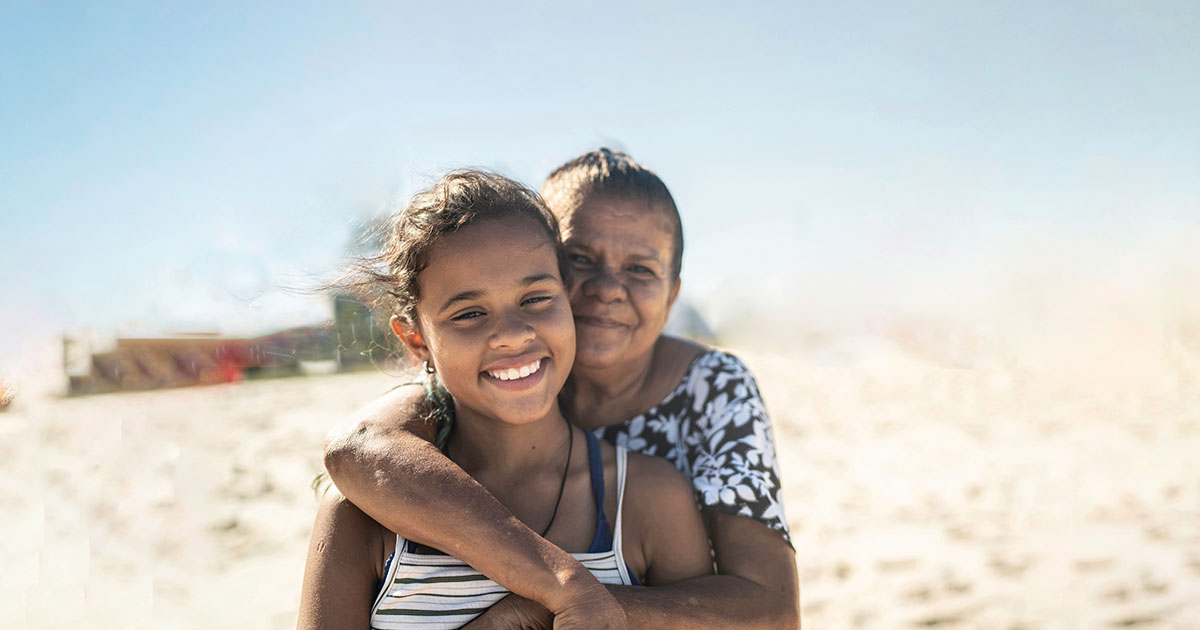Poverty in Australia: Five alarming statistics
Uncover the stark reality of poverty in Australia with these key facts.
Everyone deserves to have access to basic needs like health, education, food or housing. Sadly, this isn’t the case for many around the world.
To fully grasp the reality of poverty in Australia, it’s important to first define poverty.
What is poverty?
Poverty is defined as having a lack of resources or money to fulfil immediate basic needs – such as food, housing, clothing – and for long-term savings or wealth.
Poverty is more than just scarcity of money; it can take away people’s choices and prevents them from living a safe and secure life.
Poverty can force families to make difficult decisions, like choosing between food or heating in winter, and can affect people's ability to secure a job, find a stable home, gain empowerment and dignity.
What is the poverty line?
The OECD defines the poverty line as half the median household income. In Australia, the poverty line works out to be $489 per week for a single adult, and $1027 per week for a couple with two children.1
Does poverty exist in Australia?
Poverty does exist in wealthy countries like Australia. A 2022 study found that 3.3 million people in Australia live below the poverty line, including 761,000 children.1
Five alarming facts about poverty in Australia
1. Over three million Australians live in poverty1
Alarmingly, over 3.3 million Australians are living in poverty, facing significant disadvantages and challenges in their day-to-day lives1.
A significant driver of poverty and homelessness in Australia is the rising cost of housing – as it becomes increasingly difficult to make ends meet, many families are facing financial instability and vulnerability.
In 2024, the median weekly rent in Australia is $627 a week, increasing by 8.5% since last year.2 For families living under the poverty line, affording a safe home can be out of reach, with many families facing the difficult choice between paying rent or buying food.
2. Two million Australian households have experienced food insecurity
Over 2 million households in Australia have experienced severe food insecurity in the last 12 months.3
Food insecurity means these households reduced their food intake, skipped meals, or ate lower quality or unhealthy food. Sixty per cent of households experiencing food insecurity go a whole day without eating at least once a week.3
3.One in six Australian children are living in poverty1
For the 761,000 children living in poverty in Australia, poverty has detrimental effects on their education and their wellbeing, health and future outcomes.1
- Poverty affects children’s ability to succeed in school
Students with fewer resources struggle to buy new clothes, lunches, or school supplies, affecting their ability to fit in and succeed in the classroom. By the time they were 15 years old, children growing up in poverty were found to be up to three years behind in school compared to their peers. As children grow, this gap increases and limits their opportunities in life, typically for reasons outside their control.4 - Poverty affect’s children’s future opportunities
Children who experience poverty are more likely to experience disadvantages as adults. Compared to young adults who never experienced poverty, those who experienced poverty as children were 3.3 times more likely to be poor, 2.5 times more likely to live in social housing, and 2.5 times more likely to experience financial stress. They were also more likely to experience poor mental and physical health.6
4. Over 2 million households in Australia experienced severe food insecurity2
On any given day, more than half a million households struggle to put food on the table. Alarmingly, 21% of Australian households experienced severed food insecurity.2
While many are struggling with the rising cost-of-living, households with children are affected more than others in the past year. Single parent households are hardest hit with 37% of single-parent households skipping meals or going whole days without eating.2
5. Sole-parent families and renters over 65 years are the hardest hit by poverty1
Australians most likely to be living in poverty are older people who are renting, sole-parent families or families with children reliant on part-time earnings.
For people aged 65 and older, renting in the private market increases their risk of poverty and homelessness.6 For those without pensions, sudden life events such as a death of a partner can cause them to become homeless. Additionally, sole-parent families who must rely on a single income are more likely to face disadvantages and is more likely for families where the female is the main income earner.
How does Mission Australia help people living in poverty?
Mission Australia’s range of services are focused on ending poverty in Australia by ensuring every Australian has a safe home and can thrive. On the frontline, our staff see and work alongside people trapped in poverty or struggling to make ends meet.
Backed by our funders, supporters and partners we provide services to combat homelessness, provide housing, assist struggling families and children and much more. Given the right support, we believe everyone can reach their full potential.
Our research, policy and advocacy work support people in need to thrive. We continue to make policy submissions and advocate strongly for further investment in social and affordable housing, actions to end homelessness, adequate income support and other policy priorities to support people in need to thrive.
Learn more about how you can help end homelessness in Australia.
How you can take action to end poverty in Australia
1 Poverty in Australia, ACOSS & UNSW (2022)
2 CoreLogic Australia (2024)
3 Foodbank Hunger Report (2022)
4 Thomson et al, 2011, Challenges for Australian Education: Results from PISA 2009
5 Melbourne Institute (2020) Does poverty in childhood beget poverty in adulthood in Australia?
6 AIHW Older Australians (2024)
Latest news, media & blog articles
Read about what we’ve been working on, our stance on important social issues and how you make a difference to vulnerable Australians' lives.



